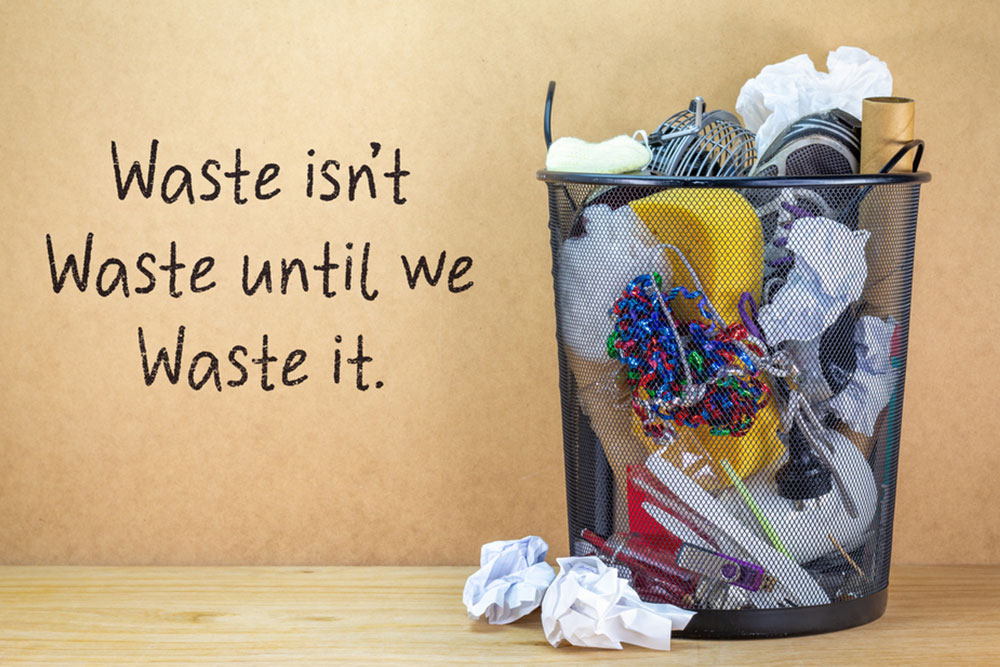You might want to commit to an eco-friendly, sustainable lifestyle right now, but what often stops people from committing fully is the consideration of their pockets. After all, organic and environment friendly products—whether it’s food or fashion—does not come cheap. While plastic and unsustainable products are inexpensive and convenient, sustainable goods are generally pricey because they promise fair value to their producers, like small-scale farmers and local artisans, while also promising good health for you and the planet.
But what about your personal financial health? Is the cost of going green and living a sustainable lifestyle really too high for you? Here’s what Neha Srinivasan, the vice president for Strategy and Finance at the Reliance Foundation, has to say about sustainable living on a budget.
Sustainability and personal finance: A win-win combination
Srinivasan suggests that contrary to the idea that leading a sustainable lifestyle is expensive and likely to cut a deep hole in your pocket, sustainability, as a principle, could be extremely beneficial for you, financially. Sure, when you first make the transition to sustainable living, the monthly expense sheet and budget may seem overstretched. But the key similarities between sustainability and personal finance make combining both, in the long term, a win-win for you.
A study published by the North Carolina State University in 2018, titled Exploring the Relationship Between Sustainability and Personal Finance Practices, explains this pretty well. It says that both sustainability and personal finance are areas that involve managing available resources optimally so that today’s consumption is just as guaranteed as consumption in the future. The thought of leaving something valuable behind for the future generations plays a key role in both. The study also found that those who have pro-environment sustainability attitudes also have a responsible attitude towards personal finance and financial sustainability.
So, better outcomes for sustainability and personal finance are likely to go hand in hand for you, especially if you take the time to become environmentally and economically conscious by getting sufficient knowledge about both. Srinivasan believes that Indian women today are well-equipped to strike the perfect balance between environmental and economic sustainability, especially if they tap into the rich Indian legacy for sustainable practices. “Since our ancestors have witnessed the process of sustainable living, it would be quite feasible for Indian women to adopt the same,” she says. “However, it would require will, determination and patience to sail through the journey of sustainable living. One advantage that many modern women have is the access to knowledge and financial independence. These two factors can go a long way in a woman’s life to help her understand the lifestyle of the past and experiment with the present so as to achieve a balance.”

Sustainable lifestyle on a budget: Benefits for life
In case you are still unconvinced that sustainability can be practised while budgeting for your present and future life, Srinivasan provides two key areas where the link is undeniable.
The first area has to do with your future health expenses. With age, these expenses are likely to go up, necessitating your investment in life insurance and medical insurance. But, sustainable living can reduce these future costs if adopted today. “By laying emphasis on the concept of ‘food is medicine’, sustainable living can provide you with a healthy lifestyle, improve general hygiene and sanitation, prevent major diseases as well as global environmental threats like climate change, depletion of the ozone layer, reduction of biodiversity, degradation of ecosystems and the spread of persistent organic pollutants,” she says. What’s more, a sustainable lifestyle can also strengthen preventive medicine systems like Ayurveda, which are holistic in approach, natural and not as expensive as allopathy might be.
The second area is retirement, specifically the funds you need for it. Health is a big focus area for those planning their retirement and saving for it, and as mentioned above, sustainable living can help reduce its burden by a lot. But, there’s more to it than that. Your retirement corpus is supposed to finance your lifestyle after retirement, and there’s no better way to make it holistic and adequate than by adopting a sustainable lifestyle. “As sustainable living coincides with minimalistic living, the dependence on materialistic things fades, thereby taking one away from an extravagant lifestyle,” Srinivasan explains. “So, it can be said that sustainable living can help in easing the burden of retirement and need for a huge retirement corpus that finances extravagant lifestyles.”
Moreover, she insists that activities like cooking your own food, walking to nearby stores and gardening or growing your own food—which are recommended to those looking to adopt a sustainable lifestyle—are also methods of staying physically active and healthy in old age. Get into these habits now, and you’ll have an easier time of maintaining physical and mental well-being when you’ve retired.

Money-saving sustainable tips
The benefits of adopting a sustainable lifestyle as soon as possible are, therefore, undoubted in the long run. Now, if you’re worried about the short run and the immediate expenses you will incur when making the switch to sustainability, Srinivasan has a few money-saving tips you can deploy right now to ease the transition:
• Developing a vegetable garden using kitchen waste. This will cut down your vegetable expenses and reduce your household waste at the same time.
• Using cloth/jute bags for groceries, and you won’t have to pay extra to get plastic bags to carry your stuff back home.
• Using traditional utensils made of iron, copper, brass, clay, etc. These last longer with a little care, are more nutritious and do not emit harmful chemicals like Teflon-coated non-stick pans do.
• Switching to local ingredients and dishes, which are packed with nutrition and heritage, instead of packaged and processed food.
• Not wasting food. If you buy only what you’ll eat, and focus on not wasting anything, your food expenses will automatically decrease.
• Conserving water and energy by ensuring you switch off the taps as well as the lights and fans when you don’t actually need them.
• Making use of natural light as much as possible, which is likely to save you from high electricity bills.
• Depending less on appliances such as mixer, juicer, washing machine, heater, air conditioners to save energy. You could also go for energy-saving lights and electronics.
• Reusing, recycling or upcycling old clothes to reduce waste. You could also donate old clothes instead of binning them.
• Making use of kitchen ingredients to create natural beauty products. You could also do the same to make chemical-free cleaning products.